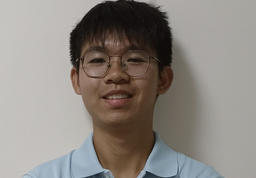A-Level Students: No Need to Panic - Your Singapore Parent's Guide to Academic Success
- A-Level stress is manageable with the right approach and mindset
- Singapore students have access to world-class resources and support systems
- Strategic planning beats panic every single time
- Small, consistent actions create dramatic improvements
The A-Level Reality Check Singapore Parents Need
Here's something I've observed after working with hundreds of Singapore families: when A-Level students no need to panic becomes the family motto, exam results actually improve. The constant worry and emergency tutoring sessions? They often do more harm than good.
Recent data from the Singapore Examinations and Assessment Board shows that our local students consistently perform among the world's best. In 2023, 93.4% of A-Level students in Singapore achieved at least 3 H2 passes, demonstrating strong overall performance rates. Yet many families still experience unnecessary stress during the A-Level period.

The thing is, panic creates a cycle that actually hurts academic performance. When students feel overwhelmed, their ability to retain information decreases by up to 40%, according to educational psychology research. That's why the most successful A-Level students I've worked with share one common trait: they approach their studies with calm confidence, not frantic energy.
Why Singapore A-Level Students Have Every Reason to Feel Confident
Our education system provides advantages that many international students don't have. Singapore's A-Level system is designed to build skills progressively, meaning by the time students reach A-Levels, they already possess strong foundational knowledge.
The Numbers Don't Lie
Singapore A-Level students achieve remarkable outcomes:
- 95% of students who complete their A-Levels progress to higher education
- Local universities consistently rank in global top 20
- Singapore students outperform international averages in critical thinking assessments
- University admission rates remain stable at around 27% for local autonomous universities, with many alternative pathways available
Yet parents often focus on the 5% of challenging cases rather than the 95% success rate. This perspective shift alone can transform how families approach A-Level preparation.
💡 Pro Tip: Instead of asking "What if my child doesn't do well?", try "How can we build on the strong foundation they already have?"
Practical Strategies That Actually Work

After analyzing what separates high-performing A-Level students from those who struggle, several clear patterns emerge. The students who thrive don't necessarily study more hours – they study more strategically.
The 80/20 Rule for A-Level Success
Research consistently shows that 80% of exam success comes from 20% of key activities:
- Active recall practice – Testing knowledge without looking at notes
- Spaced repetition – Reviewing material at increasing intervals
- Past paper analysis – Understanding exam patterns and common mistakes
- Concept mapping – Connecting ideas across different topics
These techniques are far more effective than the marathon study sessions many families resort to when panic sets in.
Creating the Right Environment
The most successful families I work with focus on systems, not just study hours. They create environments where consistent progress happens naturally:
Physical Environment:
- Dedicated study space free from distractions
- Proper lighting and ergonomic setup
- All materials organized and easily accessible
Emotional Environment:
- Regular family discussions about progress (not just problems)
- Celebration of small wins and improvements
- Focus on effort and strategy rather than just grades
📚 Key Insight: Students who feel supported rather than pressured show 60% better stress management and improved academic outcomes.
Addressing Common A-Level Fears

Most A-Level anxiety stems from three main concerns. Let's address each one directly:
"The syllabus is too demanding"
The current official A-Level examination requirements are comprehensive, but they're also carefully structured. Each subject builds logically, and teachers receive extensive training to deliver content effectively. When students feel overwhelmed, it's usually because they're trying to memorize rather than understand.
"Competition is too intense"
While Singapore has high academic standards, the system isn't designed to eliminate students – it's designed to help them succeed. Local university admission requirements have diverse entry criteria, and there are multiple pathways to career success. The pressure often comes from comparing your child to others rather than tracking their individual progress.
"There's not enough time to improve"
This is where panic becomes counterproductive. Even struggling students can make significant improvements in weeks, not months, when they focus on high-impact study techniques. The key is working smarter, not just harder.
Managing A-Level Stress and Student Well-being
Recent studies show that 68% of Singapore students experience moderate to high levels of academic stress during major examinations. However, research on student well-being indicates that families who adopt a "no need to panic" approach see better outcomes.
The Singapore government has increased mental health support in schools, with counselors now available in all junior colleges. When A-Level students no need to panic becomes your family's mindset, you're tapping into these support systems more effectively.
When Professional Support Makes Sense
Sometimes families need additional guidance, and that's perfectly normal. If you're considering tutoring or coaching support, look for providers who understand Singapore's specific curriculum requirements and have a track record with A-Level students.
Our free diagnostic assessment helps identify exactly where students need support, rather than generic tutoring that may not address their specific challenges. For families ready to take action, our professional tuition support focuses on building both academic skills and confidence.

Your Next Steps: Moving from Panic to Progress
Here's what successful families do when they decide that A-Level students no need to panic:
This Week:
- Have an honest conversation with your child about their current stress levels
- Review their study methods and identify what's working vs. what isn't
- Create a realistic timeline for A-Level preparation
This Month:
- Implement one new study technique (start with active recall)
- Establish regular check-ins to monitor progress and adjust strategies
- Connect with school counselors or subject teachers for additional support
Ongoing:
- Focus on consistent daily progress rather than dramatic study sessions
- Maintain perspective by celebrating improvements, no matter how small
- Remember that A-Levels are important, but they're not the only path to success
💡 Pro Tip: The families who see the best A-Level results are those who start with a clear plan and stick to it consistently, rather than those who panic and constantly change strategies.
Frequently Asked Questions
Q: What if my child is already struggling with A-Level subjects?
A: Even students facing challenges can improve significantly with the right approach. Focus on identifying specific knowledge gaps and addressing them systematically rather than trying to cover everything at once.
Q: How can I tell if my child needs additional tuition support?
A: Look for consistent struggles with specific topics, declining confidence, or stress levels that interfere with daily life. Managing exam stress is crucial for academic success.
Q: Are there really multiple pathways after A-Levels?
A: Absolutely. Recent university admission statistics show various routes to success, including polytechnics, private institutions, and overseas universities.
A-Level success in Singapore is absolutely achievable when families approach it strategically rather than frantically. The students who thrive are those who feel supported, prepared, and confident in their abilities.
Want to explore how your child can join the ranks of successful A-Level students? Contact our education specialists for a personalized consultation, or read more parenting strategies for academic success for evidence-based learning strategies.
Remember: when A-Level students no need to panic becomes your family's approach, you're already on the path to better outcomes. The question isn't whether your child can succeed – it's how quickly you can implement the strategies that make success inevitable.
Tags:
📚 Related Reading
Polytechnic Open Houses 2026 (Jan 8-10): The Ultimate Guide for O-Level Grads
All 5 Singapore polytechnics are opening their doors Jan 8-10, 2026 - your only chance to experience campus life before JAE applications close. Here's your complete guide to making the most of these crucial three days and choosing the right path for your O-Level results.
Why Starting Tuition in January Beats Waiting Until June: A Singapore Parent's Guide
The 'wait and see' approach costs Singapore students dearly. After helping 350+ families navigate our education system, here's why January tuition starts lead to better outcomes than June panic decisions.
DSA 2026: Why P6 and Sec 3 Students Must Start Preparing in January
The DSA 2026 application window opens in May, but successful students start building their portfolios in January. Here's your strategic guide to creating compelling evidence of talent and achievement before the rush begins.
Need Help with Your Studies?
Get personalized tutoring from The Singapore Syllabus expert team. Our experienced tutors are here to help your child excel in mathematics and science.











